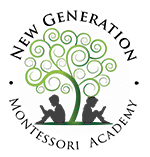A Prepared Environment
Child-centered Environment
One key feature in a Montessori classroom is a prepared environment. Maria Montessori was adamant about having a prepared environment where children could feel as if it was their own special home. With a prepared environment, we no longer seek over-sized shelves and counters to facilitate teachers, but child-sized shelves, chairs, tables and materials to facilitate the child. In our child-centered environments, it is easy for the children to perform various tasks at their own pace, with minimal help from the guide. Our environments are carefully planned to make sure your child never misses a sensitive period and is always able to master every activity on his own schedule.
Intellectual Environment
The five areas of Montessori Environment:
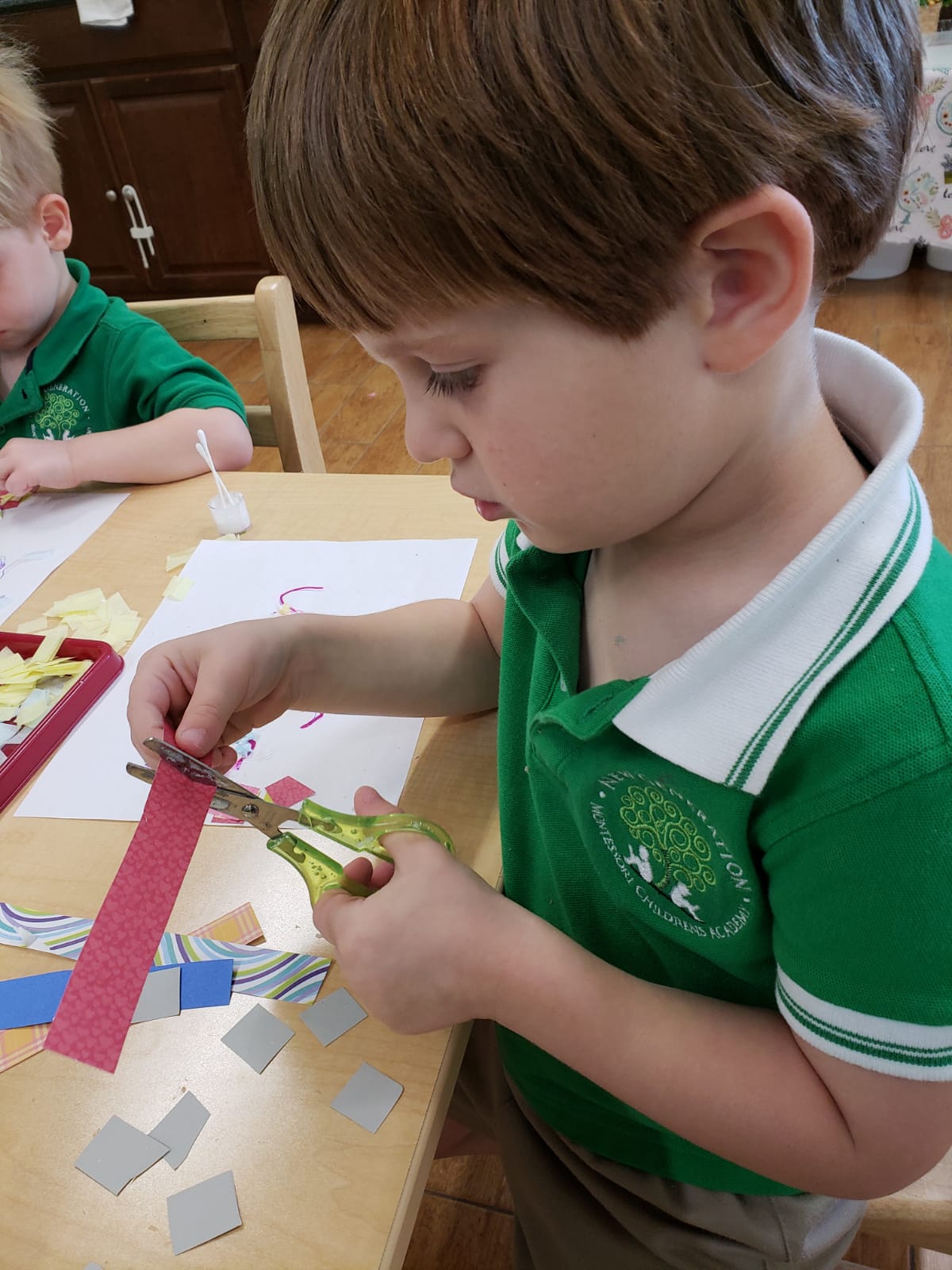
Practical Life
Within this area lies the foundation of the Montessori philosophy.
One of the most detailed areas, practical life contains two of the following: Practical, meaning Suitable for a particular purpose, and Life meaning: a way or manner of living. Daily activities that suit a particular purpose. All lessons in practical life are always taught with the underlying goal of OCCI: Order, Coordination, Concentration and Independence. Inside our practical life area you will find the following life skills:
Control of movement: where the child is learning how to master their fine motor skills through grasping, pouring, serving, spooning, opening and closing and many more lessons.
Grace and courtesy: the child will learn how to interact socially in a positive way. There will be a strong foundation set on politeness, manners and empathy. They will learn these characteristics through activities such as preparing snacks for the class, setting the table, pushing in chairs and many more!
Care for the environment: The child will learn how to care for his space around him- no matter where he is. Lessons on care for the environment include polishing plants, feeding pets, polishing tables, sweeping and table washing.
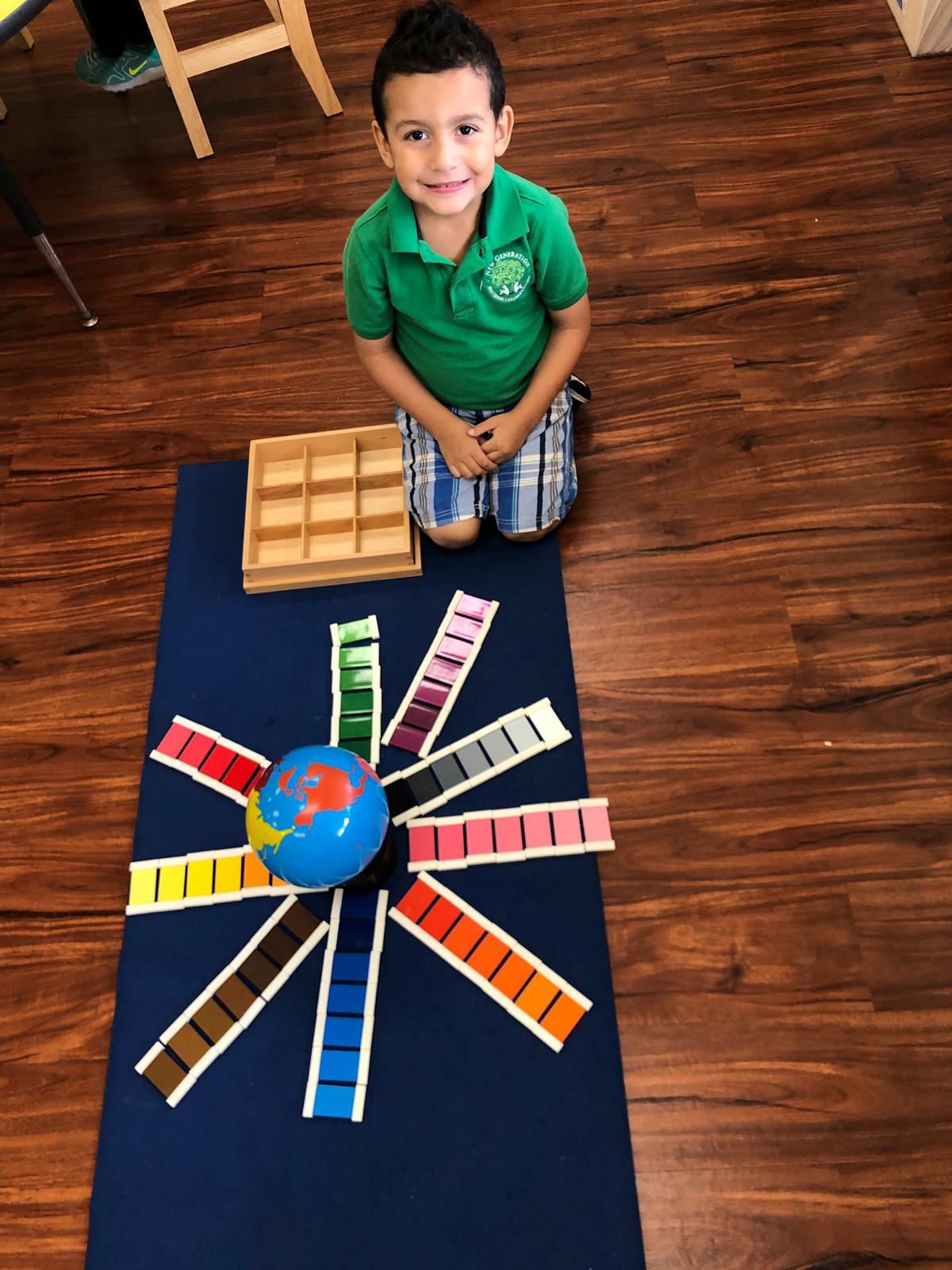
Sensorial
The Sensorial area of the Montessori classroom is designed to develop children’s skills in perception and discrimination.
This area works strongly on the refinement of the five senses. Each lesson hands-on activity calls the child’s attention to small details and qualities, that would often be disregarded, such as color, weight, shape, size, texture, smell, sound, and taste. During the ages of 0-6 is when the child’s development of the five senses is strongest, and therefore should not be overlooked.
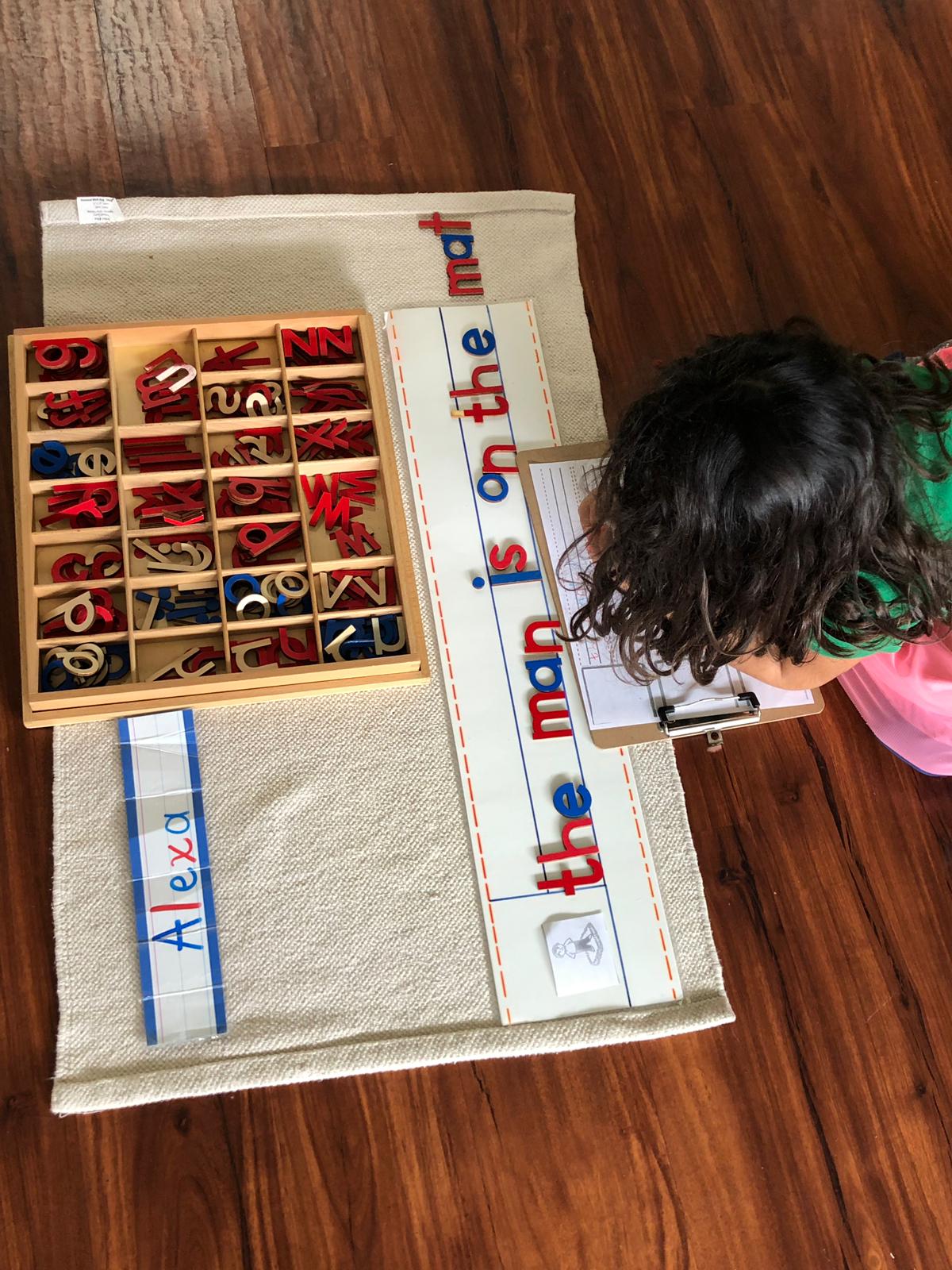
Language
The language area of the classroom is comprised of several developmental stages for language.
It begins with discrimination, for the future goal of discrimination of letters shapes and sounds. Montessori focuses strongly on phonetics, with lessons that can be manipulated. Montessori lessons are created to improve and expand the child’s vocabulary every step of the way, moving past letters and sounds to writing, grammar and lastly, reading by comprehension.
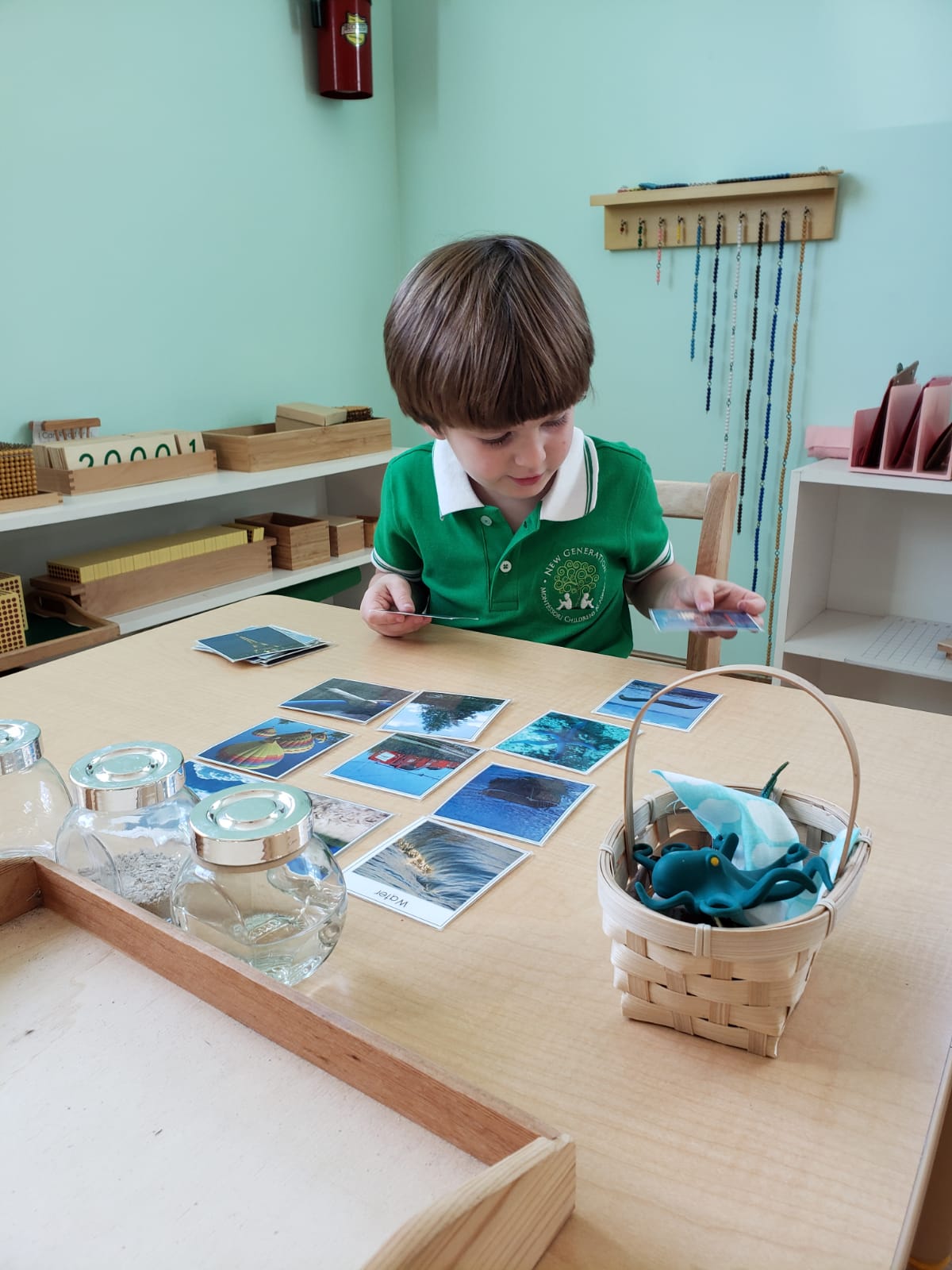
Cultural Studies
Apart from our core subjects, Montessori goes beyond to include the areas of: Geography, Foreign Languages, Science, Botany, Zoology, Anatomy, Art and Music..
Montessori leaves no gaps for the wandering mind, it dedicates an area to all sensitive periods a child may go through. Whether it is learning about different cultures, cities or continents, learning about the hands-on experiments and nature, to learning about the different characteristics and things that are seen in animals and humans to the children who have an artistic side or love to move with the rhythm. Our curriculum allows every child to pave their own path, by choosing the activities which they are most attracted to, naturally..
The main principles to a Prepared Environment in any high-quality Montessori include:
FREEDOM:
The best way for a child to learn is through freedom. The child will not be able to grasp information presented if they did not choose it freely, they will only be doing it out of obligation. In order for the child to truly be interested and engaged, the child must experience freedom of movement, freedom of exploration, freedom to interact socially, and freedom from interference from others. This freedom ultimately leads to a greater freedom: freedom of choice.
STRUCTURE AND ORDER:
Hand in hand with freedom, come structure and order. “Order means light and peace, inward liberty and free command over one’s self; order is power.” During the sensitive period for order, the child cries out silently for order, he cannot perform to his highest potential if there is no order in his mind. He must see order in his environment, and he will naturally develop a sense for structure and order, it is not something the child needs to be taught, it is spontaneous and inside the child already.
BEAUTY:
A Montessori environment is always beautiful. Simply put, It’s human nature- we are more inclined to leave something dirty, if it is already dirty, than if we were to leave something clean if it was already clean. The same concept manifests itself in a Montessori environment, when the children see their beautiful classroom: clean, organized, in harmony, they are more inclined to keep it that way. They are happier in an atmosphere that provides peace and is pleasing to their eye, rather than an environment that causes them to be feel chaos and mess.
NATURE & REALITY:
Montessori had a deep respect and reverence for nature. She believed that we should use nature to inspire children. Fantasy play was switched for reality, instead of a fake plants, children learned how to care for real plants, instead of playing with fake dolls, children learned how to wash a baby and how to dress a baby. A prepared environment invites children to learn about the real things that surround them, butterflies flying in the yard, Earthworms that alter the soil and allow air and water to circulate. These are concepts that will carry with them and their children.
INTELLECTUAL ENVIROMENT:
All our Montessori environments are carefully and beautifully designed around five areas. Practical life, Sensorial, Language, Mathematics and Cultural studies.
MULTI-AGE CLASSROOMS
In a prepared Montessori environment, you find children of different ages in the same room. This allows for Our children learn how to care for each other, as they create a family setting with sibling-type relationships. Here is where the different ages learn skills and traits such as motivation, self-esteem, self-control, reinforcement and many more benefits that allow them to grow a community outside of their home.
